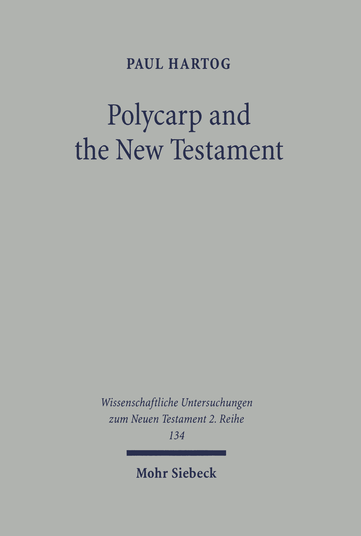Theology
Paul Hartog
Polycarp and the New Testament
The Occasion, Rhetoric, Theme, and Unity of the Epistle to the Philippians and its Allusions to New Testament Literature
[Polycarp und das Neue Testament. Von Paul Hartog.]
unrevised e-book edition 2019; Original edition 2002; 2002. IX, 281 pages.
Wissenschaftliche Untersuchungen zum Neuen Testament 2. Reihe 134
Published in English.
Polycarp's Epistle to the Philippians has often been used to bolster theories about the collection and use of the New Testament documents in Early Christianity. Unfortunately, past studies have often lacked a thorough investigation of the Epistle for its own sake, prior to its use as evidence in other debates. Therefore, Paul Hartog examines in the preliminary chapters the Epistle's historical background, the community situations, and the heretical opponents. Then he applies epistolary and rhetorical criticisms to the letter and its paraenetic themes. After these important foundational investigations, the problematic issue of the unity of the letter is addressed. Although Harrison's theory of a conflated epistle still dominates the field, this work argues for the integrity of the letter.Paul Hartog continues by ascertaining, through objective criteria, which New Testament documents Polycarp certainly or probably used. Specific issues are then addressed, including Polycarp's creative weaving of traditional materials, his apparent disregard for the Hebrew Scriptures, his use of the term 'Scriptures,' his adaptation of Pauline theology, his hypothesized authorship of the Pastoral Epistles, and his evidence for the early collection of the New Testament documents.
